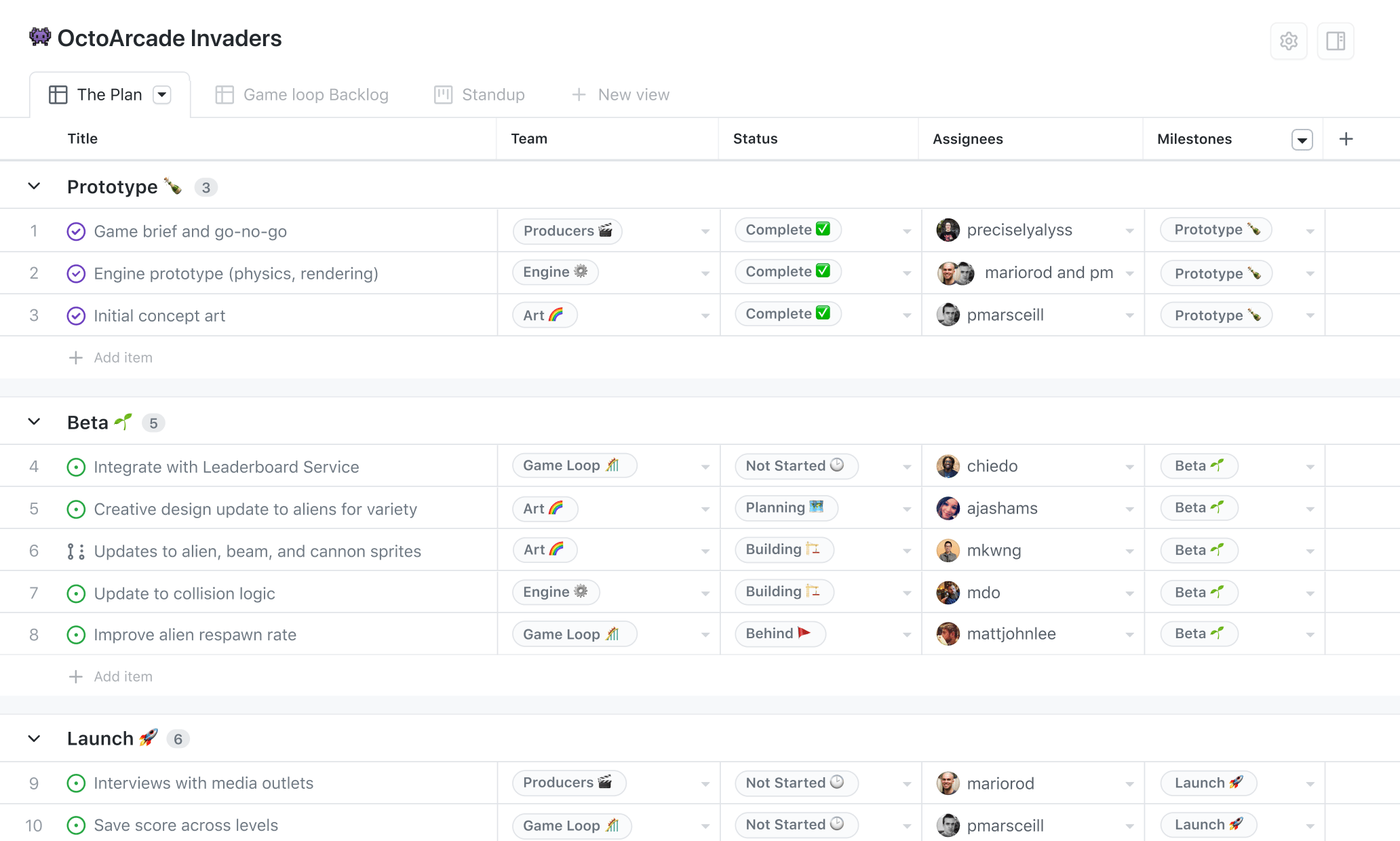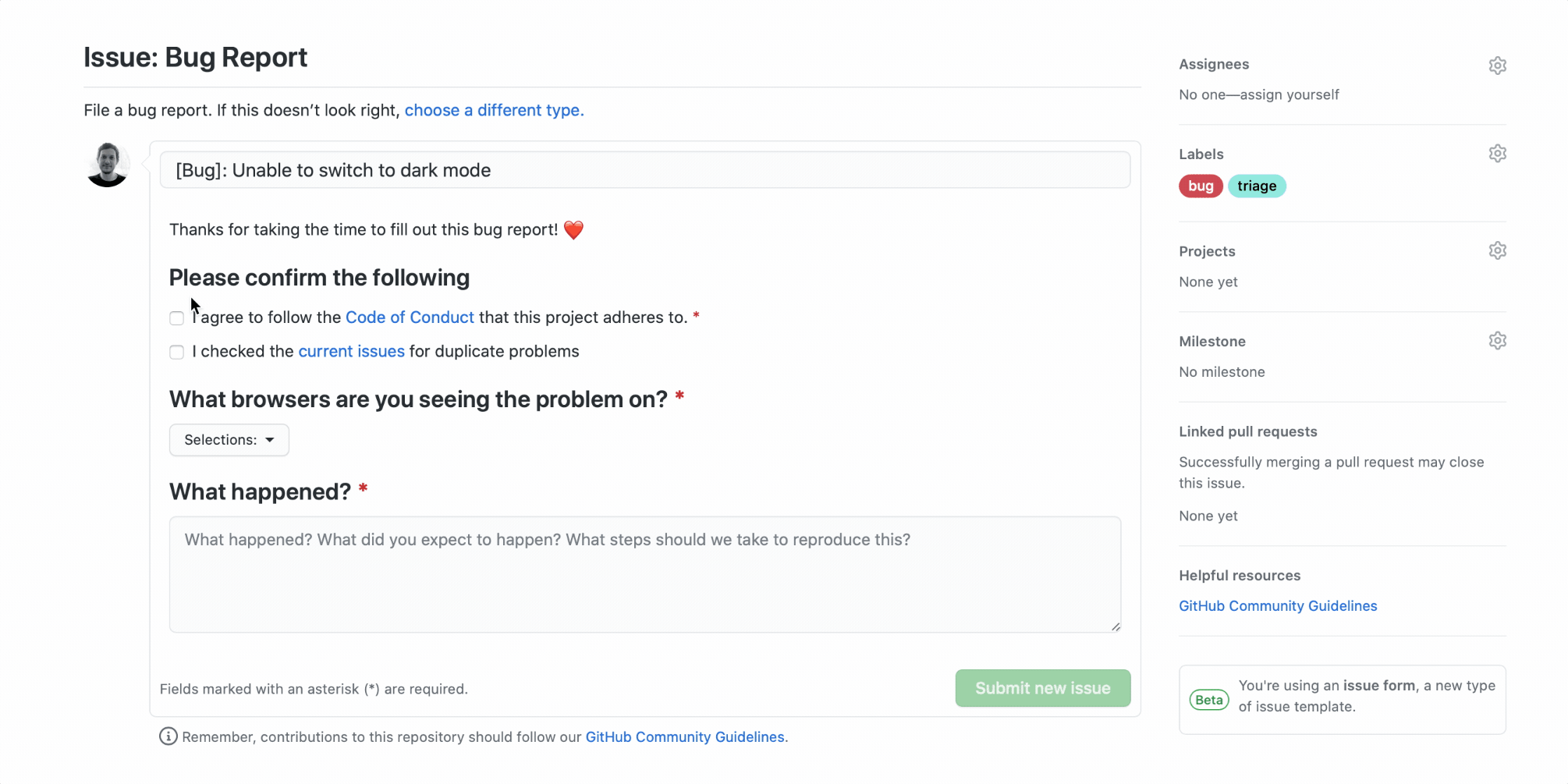Major Revamp Coming to GitHub Issues
This week GitHub unveiled new features that will be included in a total revamp of GitHub Issues, including project tables that are similar to spreadsheets, custom fields, a keyboard driven command palette, improved task lists, and issue forms. The new project table view is an alternative to project boards, allowing users to filter, sort, and group issues and pull requests. Project managers can customize the table with custom fields and saved views.

GitHub is also making it easier to manage issues that include subtasks. Users can now add lists and the issue will automatically track the status with a progress indicator.

Issues forms are now in beta for public repositories. Many open source projects currently use Markdown issue templates and encourage contributors to provide more details by removing the placeholder text and replacing it with their own. Maintainers can now set up YAML configured forms with required fields and instructions to better guide the process.
The revamped Issues feature is being updated to provide a bridge between the planning tools and the problems the tools were created to solve. Mario Rodriguez, Head of Product for GitHub Enterprise, explained why they are evolving GitHub Issues in the beta announcement:
As teams and projects grow, the way you work evolves. Tools that hard-code a specific methodology are too rigid and complex to flex to whatever the moment demands. Often, we find ourselves creating a spreadsheet or pulling out a notepad, just to have the freedom to think. But then our planning is disconnected from where the work happens and quickly goes stale.
The WordPress project hasn’t yet moved away from Trac but most of Gutenberg development happens on GitHub. It’s also the most popular repository hosting site for WordPress theme and plugin authors. Contributors to these projects may soon see some of these features in action for personal accounts and organizations that opt into the beta.
The new GitHub Issues is expected to be out of beta later this year. GitHub plans to bundle it for free, along with the new project planning capabilities, with its Free, Pro, Team, and Enterprise plans.









